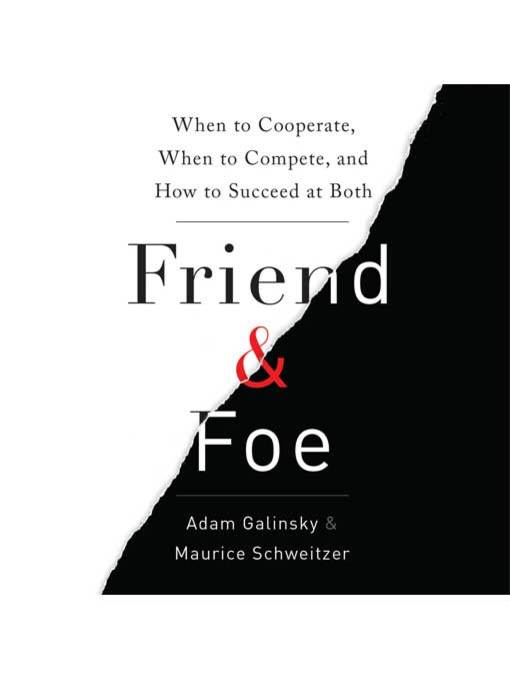-
Description
-
Creators
-
Details

- Adam Galinsky - Author
- Maurice Schweitzer - Author
- Tom Perkins - Narrator
OverDrive Listen audiobook
- ISBN: 9781622319381
- File size: 260075 KB
- Release date: September 29, 2015
- Duration: 09:01:49
MP3 audiobook
- ISBN: 9781622319381
- File size: 260311 KB
- Release date: September 29, 2015
- Duration: 09:01:44
- Number of parts: 10
